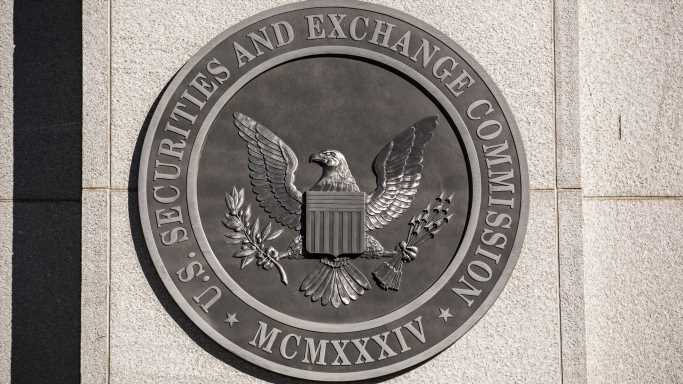Is Tether (USDT) the Next Target of the SEC?
The US Securities and Exchange Commission has launched an aggressive crackdown on the crypto market. The commission has already filed complaints against two of the biggest players in the industry, stirring up speculation as to whether Tether (USDT), the largest stablecoin in the market, could be next.
Does the SEC’s Crypto Crackdown Confirm “Operation Choke Point 2.0”?
The SEC has launched a legal battle against some major crypto firms. So far this year, the commission has taken enforcement action against crypto exchanges Kraken and Bittrex, as well as crypto lending platform Nexo.
Earlier this week, the commission also sued both Binance, the world’s largest cryptocurrency exchange, and Coinbase, the largest US-based cryptocurrency. The regulator argued that both platforms operated as unregistered exchanges, offered unregistered securities, and misled customers, among other things.
The complaints, particularly the lawsuit against Coinbase, came as the exchange has been urging the SEC for clearer crypto regulation guidelines. In July last year, Coinbase filed a petition with the regulator to produce regulations explaining how securities laws apply to cryptocurrency.
The largest crypto exchange in the US also submitted a comment to the agency in March, asking for more clarity on the SEC’s views on staking services. In April, the platform even filed a lawsuit against SEC, alleging that “the SEC refuses to address Coinbase’s rulemaking petition” even as the agency aims to initiate enforcement actions against the firm for listing unregistered securities.
The sketchy behavior coming out of the SEC has convinced some in the crypto industry that US regulators might have joined hands to kill crypto in the US. This coordinated effort against crypto is dubbed “Operation Choke Point 2.0,” a term coined by Coin Metrics co-founder Nic Carter.
“I don’t want to alarm, but since the turn of the year, a new Operation Choke Point type operation began targeting the crypto space in the US,” the crypto veteran said earlier this year. “It is a well-coordinated effort to marginalize the industry and cut off its connectivity to the banking system – and it’s working”
I don’t want to alarm, but since the turn of the year, a new Operation Choke Point type operation began targeting the crypto space in the US. it is a well-coordinated effort to marginalize the industry and cut of its connectivity to the banking system – and it’s working
— nic carter (@nic__carter) February 7, 2023
Is Tether Next in Line if Operation Choke Point 2.0 is Real?
It is difficult to confirm the reality of a coordinated effort against crypto in the US. However, if such a strategy exists, there are ample reasons why the SEC might prioritize targeting Tether next.
According to crypto analyst Miles Deutscher, the SEC would be able to remove liquidity from crypto markets by targeting USDT, which composes 76% of all stablecoins on exchanges. “Why not go straight for the jugular and starve crypto of its liquidity,” he said.
Haha to everyone saying “don’t give them ideas”, they’re not idiots – they’ve 100% already thought of this.
Whether or not they (can) is another story.
— Miles Deutscher (@milesdeutscher) June 7, 2023
It is worth noting that Tether has been criticized for its lack of regulatory oversight. While the stablecoin issuer claims to have one US dollar backing each USDT token, there have been concerns over whether this is actually true.
Stablecoins as the Backbone of the Crypto Ecosystem
Stablecoins are a type of cryptocurrency designed to maintain a stable value, typically pegged to a traditional currency like the US dollar or Euro. They aim to provide the benefits of digital currencies, such as fast and low-cost transactions while avoiding the volatility that often comes with other cryptocurrencies like Bitcoin or Ethereum.
One of the biggest advantages of stablecoins is their ability to provide a reliable and consistent value for transactions, without the volatility and price fluctuations often associated with other cryptocurrencies like Bitcoin and Ethereum. This has turned them into a bridge between crypto and fiat.
Therefore, it is easy to note why a crackdown on stablecoins could have devastating implications for the crypto industry. The fact that the SEC has already labeled BUSD, a stablecoin linked to Binance, as an “unregistered security,” further increases the probability of future attacks against other stablecoin issuers – especially in light of the SEC’s recent regulatory assault.
This article originally appeared on The Tokenist
Sponsored: Find a Qualified Financial Advisor
Finding a qualified financial advisor doesn’t have to be hard. SmartAsset’s free tool matches you with up to 3 fiduciary financial advisors in your area in 5 minutes. Each advisor has been vetted by SmartAsset and is held to a fiduciary standard to act in your best interests. If you’re ready to be matched with local advisors that can help you achieve your financial goals, get started now.
Source: Read Full Article

